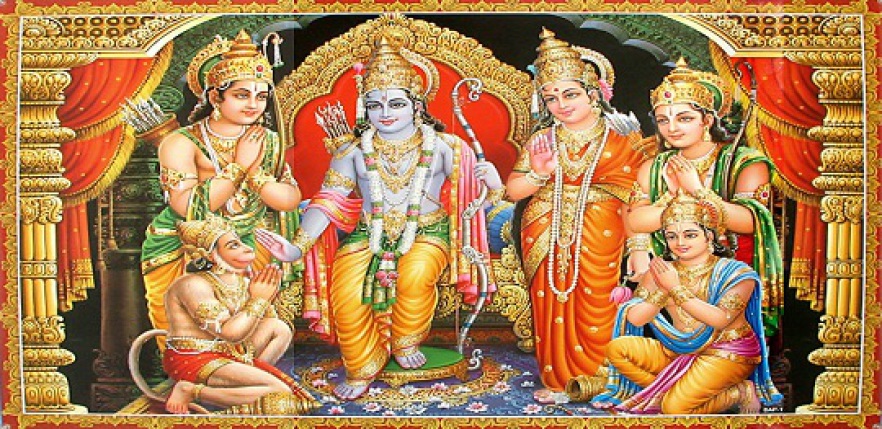Ganesha Chaturthi
It is a Hindu festival celebrated in honor of the elephant-headed God Ganesha. The festival, also known
as Vinayaka Chaturthi, is observed in the Hindu calendar month of Bhaadrapada, starting on the Shukla Chaturthi (the fourth day of the waxing moon period). The date usually falls between August and September. The festival usually lasts
for 10 days, ending on Anant Chaturdashi (the fourteenth day of the waxing moon period).
The modern festival involves installing clay images of Ganesha in public pandals (temporary shrines), which are worshipped
for ten days. These are immersed at the end of the festival in a body of water, such as a lake, along with the idol. Some Hindus also install the clay images of Ganesha in their homes. The festival
was celebrated as a public event since the days of Maratha King Shivaji (1630–1680). However, the public festival as
celebrated in Maharashtra today was introduced by Bhausaheb Laxman Javale in 1892 by installing the first Sarvajanik (Public) Ganesh idol- Shrimant Bhausaheb Rangari Ganpati, Bhudwar Peth, in Pune.
The first meeting regarding starting the Sarvajanik Ganesh Utsav took place under the leadership of Bhausaheb Laxman Javale at his residence (Bhudwar Peth), now known as Bhau Rangari Bhavan. In
1893 Lokmanya Tilak praised the concept of Sarvajanik Ganesh Utsav in Kesari Newspaper. In 1894, he installed
Ganesh's idol in Kesari Wada, Pune, and started preaching Ganesh Utsav.
While celebrated all over India, it is the grandest and most elaborate, especially in Maharastra, Andhra Pradesh, Karnataka, Telangana, Goa, and other parts of Western and Southern India. Outside
India, it is celebrated widely in the Terai region of Nepal and by the Hindu diaspora in the United States, Canada, Mauritius, and other places.
Navaratri
Navaratri is a festival dedicated to the worship of the Hindu deity Durga. Navaratri means 'nine nights' in Sanskrit, nava meaning nine and ratri meaning nights. During these nine nights and ten days, nine forms of Devi are worshiped. It is celebrated twice a year, first in the month of Chaitra (March/April of the Gregorian calendar) and again in the
month of Ashvin (September–October). The post-monsoon autumn festival is called Sharada Navaratri. The tenth day is
called Vijayadashami or "Dussehra" (also spelled
Dasara). Navaratri is an important major festival celebrated all over India. Diwali, the festival of lights, is celebrated twenty days after Dussehra. Though there are five types of Navaratri in a
year, Sharad Navaratri is the most popular one. Hence, the term Navaratri is being used for Sharad Navaratri here.
Navaratri is an annual Hindu festival observed in honor of the goddess Durga, an aspect of Adi Parashakti, the supreme goddess. It is observed for different reasons and celebrated differently in various parts of the Hindu-Indian cultural sphere. Theoretically, there are four seasonal Navaratri. However, in practice, it is the


